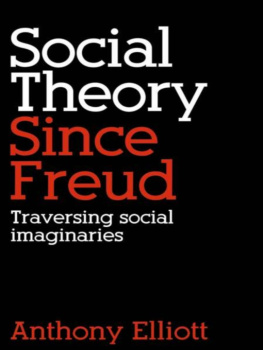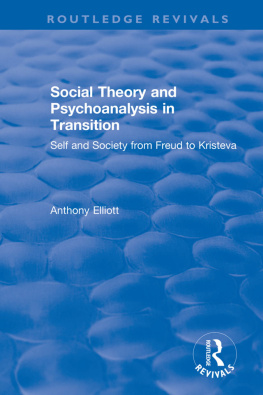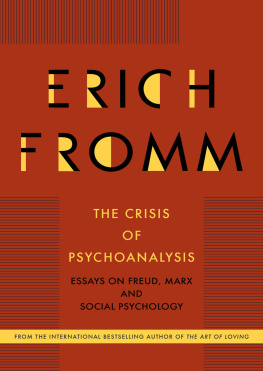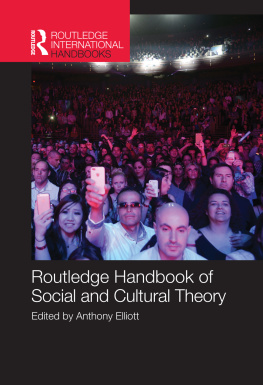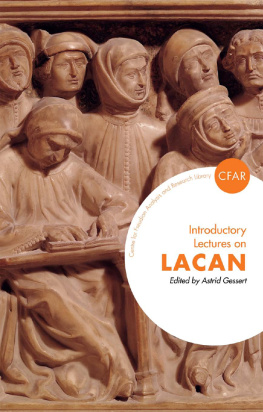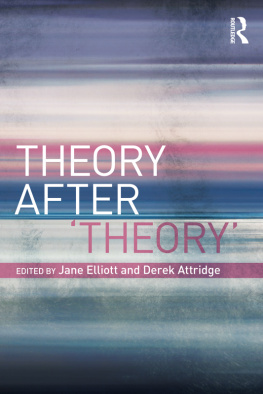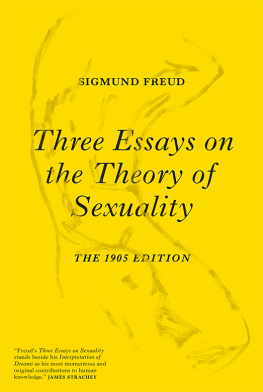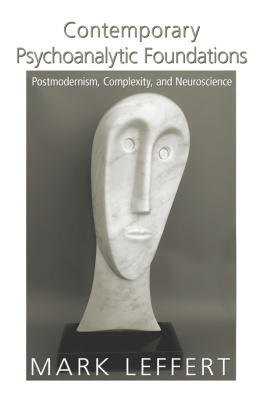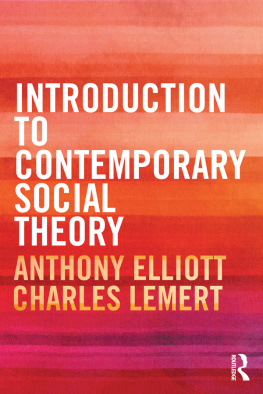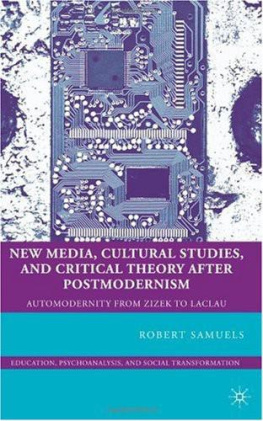Anthony Elliott is quickly emerging as a one-person industry, intent in all of his writings to demonstrate both the relevance and the importance of psychoanalytic theory for social analysis.
Anthony Elliott has once again provided a lucid and critical examination of the relationship between psychoanalysis and social theory. While many writers are still catching up with Lacans work, Elliott explains the major advances to be found in post-Lacanian theory, and shows how it offers a new view of subjectivity and the imagination attuned to the complexities of contemporary social life.
In this compelling book, Anthony Elliott traces the rise of psychoanalysis from the Frankfurt School to postmodernism. Examining how path-breaking theorists such as Adorno, Marcuse, Lacan and Lyotard have deployed psychoanalysis to politicize issues like desire, sexuality, repression and identity, Elliott assesses the gains and losses arising from this appropriation of psychoanalysis in social theory and cultural studies.
Moving from the impact of the Culture Wars and recent Freud-bashing to contemporary debates in social theory, feminism and postmodernism, Elliott argues for a new alliance between sociological and psychoanalytic perspectives. Drawing in particular from the thought of key contemporary psychoanalytic thinkers such as Julia Kristeva, Jean Laplanche and Cornelius Castoriadis, Social Theory since Freud opens the way for a new approach to the creativity of action.
Anthony Elliott is Professor of Sociology at the University of Kent at Canterbury. His recent books include Concepts of the Self (2001), Psychoanalytic Theory: an introduction (2002, 2nd Edition), Critical Visions (2003) and Subject to Ourselves (2004, 2nd Edition).
Social Theory Since Freud
Traversing social imaginaries
Anthony Elliott
LONDON AND NEW YORK
First published 2004
Routledge
2 Park Square, Milton Park, Abingdon,
Oxon OX14 4RN
Simultaneously published in the USA and Canada
by Routledge
29 West 35th Street, New York, NY 10001
Routledge is an imprint of the Taylor & Francis Group,
This edition published in the Taylor & Francis e-Library, 2005.
To purchase your own copy of this or any of Taylor & Francis or Routledges collection of thousands of eBooks please go to www.eBookstore.tandf.co.uk.
2004 Anthony Elliott
All rights reserved. No part of this book may be reprinted or reproduced or utilized in any form or by any electronic, mechanical, or other means, now known or hereafter invented, including photocopying and recording, or in any information storage or retrieval system, without permission in writing from the publishers.
British Library Cataloguing in Publication Data
A catalogue record for this book is available from the British Library
Library of Congress Cataloging in Publication Data
A catalog record for this book has been requested
ISBN 0-203-49606-X Master e-book ISBN
ISBN 0-203-57032-4 (Adobe eReader Format)
ISBN 0-415-27164-9 (hbk)
ISBN 0-415-27163-0 (pbk)
For Oscar
Contents
Preface and acknowledgements
|
Preface and acknowledgements
The discerning reader may notice that, in tracing the intellectual stock-market fortunes of psychoanalysis in social theory and critical cultural studies, the title of this work makes a play on Lacans paper The agency of the letter in the unconscious or reason since Freud. In doing so, I signal a shift of intellectual moodaway from the current orthodoxy of French Freudianism in the academy. Moving beyond Lacans Freud necessarily entails, I argue, an encounter with the wider social and political ramifications of psychoanalysisin social theory in particular and the social sciences in general.
I would like to thank Charles Lemertfor his support and friendship, and for enriching contemporary social theory. This volume is in no small way influenced by the example set by his writing, particularly Dark Thoughts (Routledge, 2002), even though the bulk of this material was drafted before I came to see the degree to which style can considerably influence substance hence some extensive redrafting!
During my work on this book, I have benefited from the conversation, input and advice of many people at the following institutes where I have lectured on Freud and social theory: the Northern Californian Society for Psychoanalytic Psychology; the Psychoanalytic Institute of Northern California; the San Francisco Institute of Psychoanalysis; the Boston Institute of Psychoanalysis; the Melbourne Institute of Psychoanalysis; the Tavistock Institute, London; the Centre for Psycho- Social Studies, UWE; and, the Centre for Psycho-Social Studies, Birkbeck College, University of London.
I should like to thank the British Academy for the award of a grant that facilitated the completion of this project. The book was finished during a period I spent as Distinguished Visiting Professorial Fellow in the Faculty of Social Sciences at La Trobe University, Melbourne. I would particularly like to thank Dennis Altman, Judith Brett and Peter Beilharz for making my stay at La Trobe such a friendly and productive one. Others who have contributed to the book, either directly or indirectly, whom I should like to thank include Jean and Keith Elliott, Nick Stevenson, Anthony Moran, Paul du Gay, Alison Assiter, Fiore Inglese, Simon Skacej, Kriss McKie, Carmel Meiklejohn and Deborah Maxwell.
I would specially like to thank Charles Spezzano, Sean Homer and Jeff Prager for their assistance and input into this book. I have also benefited through conversations with the following: Jane Flax, Janet Sayers, Stephen Frosh, Paul Hoggett, Jessica Benjamin, Nancy Chodorow, Stanley Gold, the late Judith Linnane, Lynne Segal and Patricia Clough.
Marie Shullaw, who commissioned the book, proved a patient and insightful editor. Her successor at Routledge, Gerhard Boomgaarden, has been marvellously supportive. Preparation of the manuscript was carried out by Liz Wood, who has contributed much to the project, with considerable dedication, grace and patience.
Some partssections and piecesare previously published and reprinted here by permission of the publishers or by prior agreement. These parts have appeared in the following: The Psychoanalytic Quarterly, Meridian, American Imago, Revista De Psicoanaslisis, Journal of the Universities Association for Psycho- analytic Studies, Thesis Eleven and Psychoanalytic Studies. Other traces are from contributions to previous edited collections, including Bryan S. Turner (ed.), The Blackwell Companion to Social Theory

